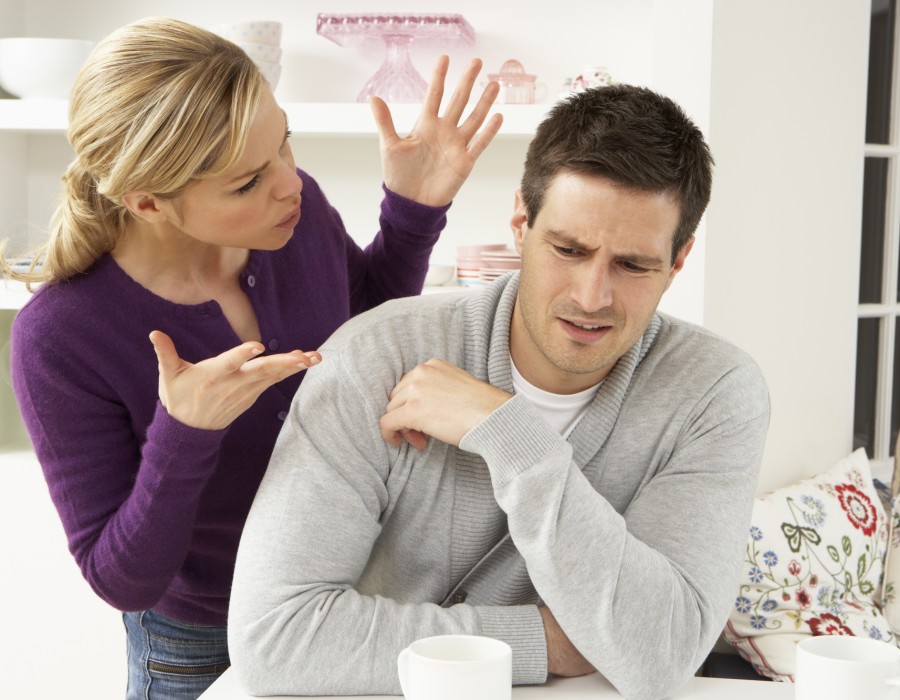11 Reasons Why People in Abusive Relationships Can’t “Just Leave”
When many people hear that someone is in an unhealthy or abusive relationship, their first question is, “Why don’t they leave?” If you’ve never been through an abusive relationship, this sort of response might seem logical. Just throw the deuces up and move on with your life – right? But here’s the thing – when it comes to relationship abuse, it’s never as easy as “just leaving.” We’re here to tell you why.
Leaving an abusive relationship is hard for many reasons. Here are 11 of the many reasons that someone in an unhealthy or toxic situation might stay with their partner.
1. Society normalizes unhealthy behavior so people may not understand that their relationship is abusive.
When you think that unhealthy or abusive behaviors are normal, it’s hard to identify your relationship as abusive and therefore there’s no reason to seek help.
2. Emotional abuse destroys your self-esteem, making it feel impossible to start fresh.
Oftentimes, people in emotionally abusive relationships may not understand that they are being abused because there’s no violence involved. Also, many will dismiss or downplay emotional abuse because they don’t think it’s as bad as physical abuse. It’s hard for those in abusive relationships to leave their partners after they’ve continuously been made to feel worthless and like there’s no better option for themselves.
3. The Cycle of Abuse: after every abusive incident comes a make-up honeymoon phase.
Often when an abusive situation happens, it is followed by the abuser doing something nice or apologizing and promising that they will never do it again. This makes their partner minimize the original abusive behavior.
4. It’s dangerous to leave. Like, VERY dangerous.
Many times, leaving an abusive relationship is not only emotionally difficult, but can also be life-threatening. In fact, the most dangerous time in an abusive relationship is post break-up. Women are 70 times more likely to be killed in the weeks after leaving their abusive partner than at any other time during the relationship.1
The best way to protect yourself if you are in an abusive relationship is to create a safety plan. For help creating one, check out our My Plan App.
5. It’s not just hard to breakup safely, it’s also hard to escape the cycle of control.
People in abusive relationships often attempt to break up with their partner several times before the break up sticks. On average, a person in an abusive relationship will attempt to leave 7 times before finally leaving for good. People in abusive relationships often attempt to break up with their partner several times before the break up sticks. On average, a person in an abusive relationship will attempt to leave 7 times before finally leaving for good.2
6. Society perpetuates a ride-or-die mindset.
Those in unhealthy or abusive relationships might stay with their partner or get back together after a break up because they feel pressure to not give up, forgive and forget or “ride it out.” Pop culture glamorizes being a “ride-or-die” for your friends and partner, making people out to be in the wrong for leaving their partner. And while being loyal is a great thing, a good friend or partner would never endanger or hurt you.
7. They feel personally responsible for their partner or their behavior.
After a conflict, an abuser will turn the situation around and make their partner feel guilty or as though they are somehow at fault. This type of behavior is known as gaslighting.
8. They believe that if they stick it out, things might change.
A lot of people in abusive relationships stay in them because they love their partner and think that things will change. They might also believe their partner’s behavior is due to tough times or feel as though they can change their partner if they are a better partner themselves. Never stay in a relationship in which you count on someone to change their behavior for the better.
9. There is social pressure to be in a perfect relationship.
There is incredible pressure to be in a perfect relationship, and some cultures and social media only accentuate this pressure.
10. Fear of how others will react.
People in abusive relationships often feel embarrassed to admit that their partner is abusive for fear of being judged, blamed, marginalized, pitied or looked down on. For example, in some LGBTQIA* relationships, someone may stay with their partner for fear of being outed.
11. They share a life together.
Marriage, children, and shared finances are often huge reasons that people in abusive relationships stay in them. This dependency is heightened in relationships where one partner is differently abled. But there are also similar factors that affect young people’s decisions to stay in relationships, including shared friend groups and living situations.
There are lots of elements that influence a person’s decision to stay in an abusive relationship. And while seeking help to get out of these relationships is the most important thing, blaming someone in an abusive relationship is never okay. There is a big difference between judgment and responsibility. While someone might have used bad judgment by staying in an unhealthy or dangerous situation, it does not mean that they are responsible, or asking, for the abuse perpetrated against them.
1 Source: Myths & Facts about Domestic Violence | Domestic Violence Intervention Program. (n.d.). Retrieved August 09, 2016, from http://www.dvipiowa.org/myths-facts-about-domestic-violence/
2 Source: http://www.standffov.org/statistics/
- Abuse & The Abuser
- Achievement
- Activity, Fitness & Sport
- Aging & Maturity
- Altruism & Kindness
- Atrocities, Racism & Inequality
- Challenges & Pitfalls
- Choices & Decisions
- Communication Skills
- Crime & Punishment
- Dangerous Situations
- Dealing with Addictions
- Debatable Issues & Moral Questions
- Determination & Achievement
- Diet & Nutrition
- Employment & Career
- Ethical dilemmas
- Experience & Adventure
- Faith, Something to Believe in
- Fears & Phobias
- Friends & Acquaintances
- Habits. Good & Bad
- Honour & Respect
- Human Nature
- Image & Uniqueness
- Immediate Family Relations
- Influence & Negotiation
- Interdependence & Independence
- Life's Big Questions
- Love, Dating & Marriage
- Manners & Etiquette
- Money & Finances
- Moods & Emotions
- Other Beneficial Approaches
- Other Relationships
- Overall health
- Passions & Strengths
- Peace & Forgiveness
- Personal Change
- Personal Development
- Politics & Governance
- Positive & Negative Attitudes
- Rights & Freedom
- Self Harm & Self Sabotage
- Sexual Preferences
- Sexual Relations
- Sins
- Thanks & Gratitude
- The Legacy We Leave
- The Search for Happiness
- Time. Past, present & Future
- Today's World, Projecting Tomorrow
- Truth & Character
- Unattractive Qualities
- Wisdom & Knowledge






Comments